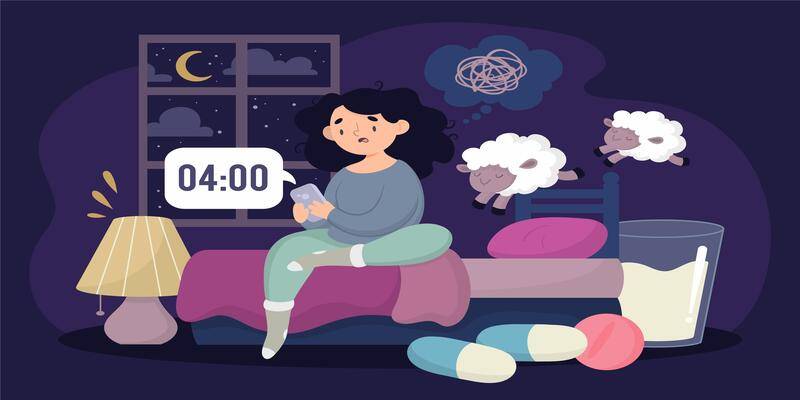Hey, don’t let that rejection bring you down

Have you ever felt that loud blaring ‘no’? Or, have you ever felt a throbbing pain in your heart when someone made you feel unwanted and unnecessary? Or, the self-doubt that arose when you thought you had all that was needed but someone popped your bubble to make you realise that maybe you did not. If you answered all these questions in an affirmative, read this quote by renowned actor Sylvester Stallone: “I take rejection as someone blowing a bugle in my ear to wake me up and get going, rather than retreat.”
Rejection is a natural part of both personal and professional lives that everyone encounters. Truth be told, I have downfaced numerous rejections in my life so far, and at times, quitting seemed like the only option. However, I chose to keep moving forward, pushing myself towards my dreams. The strategies that I’ll be sharing are the ones that I used to overcome rejections.
From personal experiences, I very well understand how disheartening rejection can be, but learning to handle it effectively can transform you into an extraordinary individual and open gateways to multiple opportunities in your career.
Let’s first understand how rejection affects the mind
Self-esteem
Rejection in life can lead to self-doubt, low self-worth, and negative self-talk, causing one to feel incapable and unworthy. I have faced numerous rejections in my relationships, which led me to believe that love was not meant for me. It took me 15 years to realise that this deeply ingrained belief shaped my experiences.
Emotional pain
Emotional pain from rejection, such as feelings of sadness, anger, and anxiety can be as intense as physical pain. The trauma is so severe that many individuals often give up after being rejected a couple of times and even avoid future opportunities altogether as their past experiences weren’t great as they don’t want to undergo the same emotions again.
Change in personality
Behavioural changes resulting from rejection mostly serve as protective mechanisms to shield oneself from further emotional pain. While these behaviours may provide short-term relief, they can lead to long-term issues such as isolation, chronic stress, and difficulty forming authentic connections. To prevent vulnerability, one tends to confine things and becomes cautious so that they don’t get exploited.
Fear of the future
Any kind of rejection can lead to living in fear, causing every step you take to be driven by desperation. When you dwell on fearful thoughts, you attract more of the same, sustaining a cycle of anxiety and hesitation. Remember, rejection doesn’t mean you aren’t good enough. It simply means the other person failed to notice what you have to offer.
If you’re sailing in the same boat, here are some effective strategies to handle stress
Accept your feelings
The first step in handling rejection is to accept what you are feeling. It’s natural to feel disappointed, sad, or even angry. Suppressing these emotions can lead to greater distress over time. Journal your feelings or talk to your friends and family members about it.
Practice detachment
Rejection often feels personal, but it’s important to recognise that it usually isn’t. Taking it personally can impact your mental well-being. Let it go by asking yourself a few questions such as, “is it really worth my time?”, “how am I supposed to do better if I remain stuck in self-pity?”, “what lessons have I learnt and how can I use it in the future?”, “how should I make a new strategy to bounce back?”, among others. By asking these questions, you shift from a state of assumption to one of empowerment, actively creating the outcomes you desire.
Pausing
Pause and remind yourself of your strengths, achievements, and the qualities that make you unique. Engage in activities that boost your confidence and make you feel good about yourself. Surround yourself with supportive people who uplift and encourage you. This is very important to break the trap of victim mode. Give yourself the much-needed pep-talk and channelise your energies in the right direction.
Reframe the rejections
Reframing is a powerful tool for changing an individual’s perspective on rejection. Instead of seeing it as a failure, consider it as a learning experience or a stepping stone towards future success. Many human beings, even those who have gone on to become millionaires or celebrities, faced numerous rejections before achieving their goals. Rejection can build resilience, teach you important lessons, and redirect you towards opportunities that can be life-changing.
Redirect your focus
Energy grows where focus goes. If you keep focusing on rejection, it can leave you feeling powerless and hopeless, but focusing on what you can control can help you a lot. As mentioned earlier, change your strategies and take inspired action to improve yourself.
Don’t entertain negativity
Rejection can be a setback but it doesn’t have to be the end of the road. Keep yourself inspired and never stop pursuing your goals. Every rejection brings you a step closer to finding the right path. Stay persistent and be receptive to new opportunities. Remember, every ‘no’ brings you closer to a ‘yes’.
Many successful individuals such as KFC founder Colonel Harland Sanders, actors Chris Pratt and Jim Carrey faced numerous rejections but never gave up on their dreams. Their persistence and determination led them to great heights in their respective fields. If they had taken rejection personally, their stories would have been far less remarkable.
Instead, they used each setback as a pathway to improve and comeback stronger. Avoid the negativity trap, motivate yourself to do your best by believing in your abilities, and create a future worth remembering. Rejection is a part of the journey as it teaches you to be stronger. The next time you feel that you are not good enough for someone, remind yourself that you are good enough for you and at the end of the day, that is all that matters.






